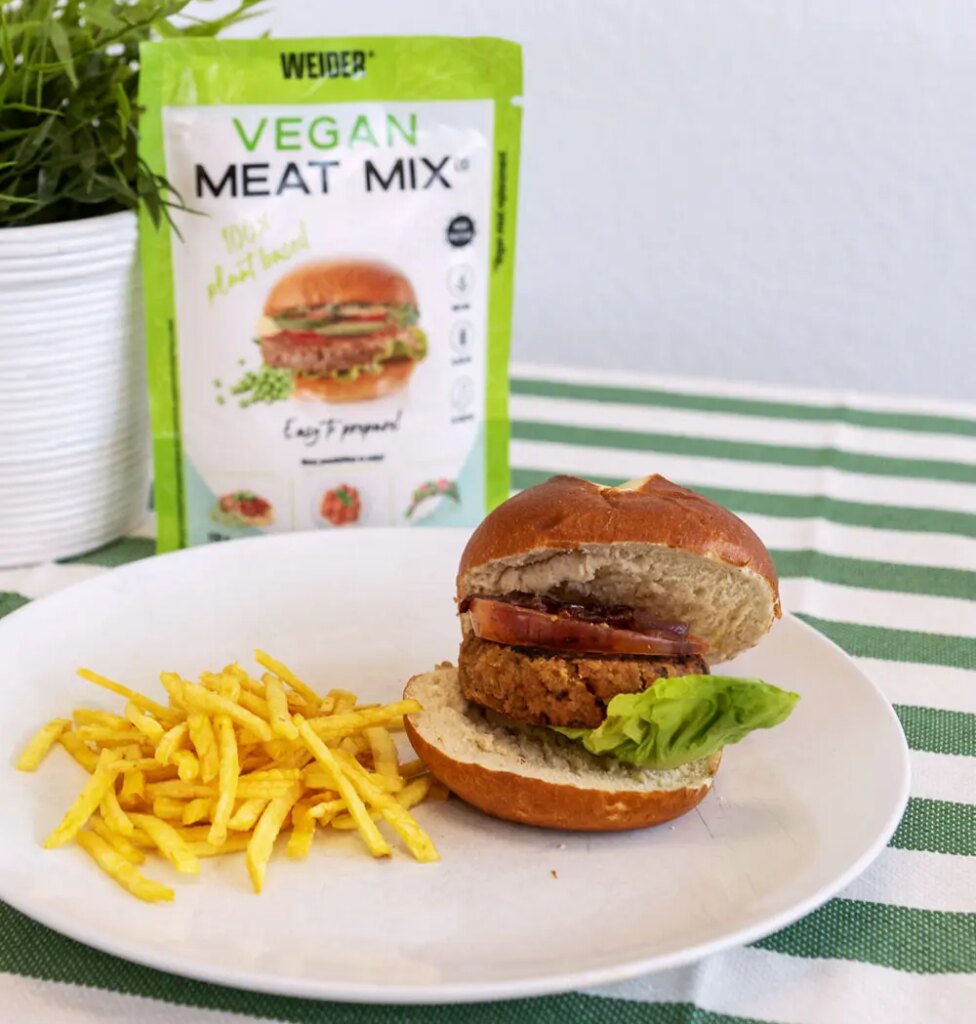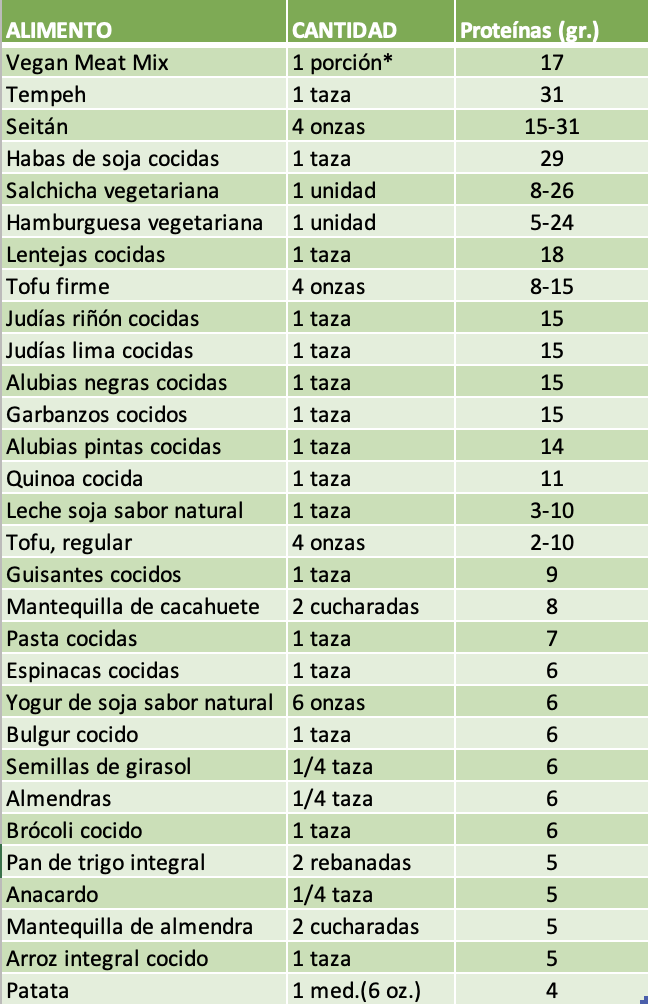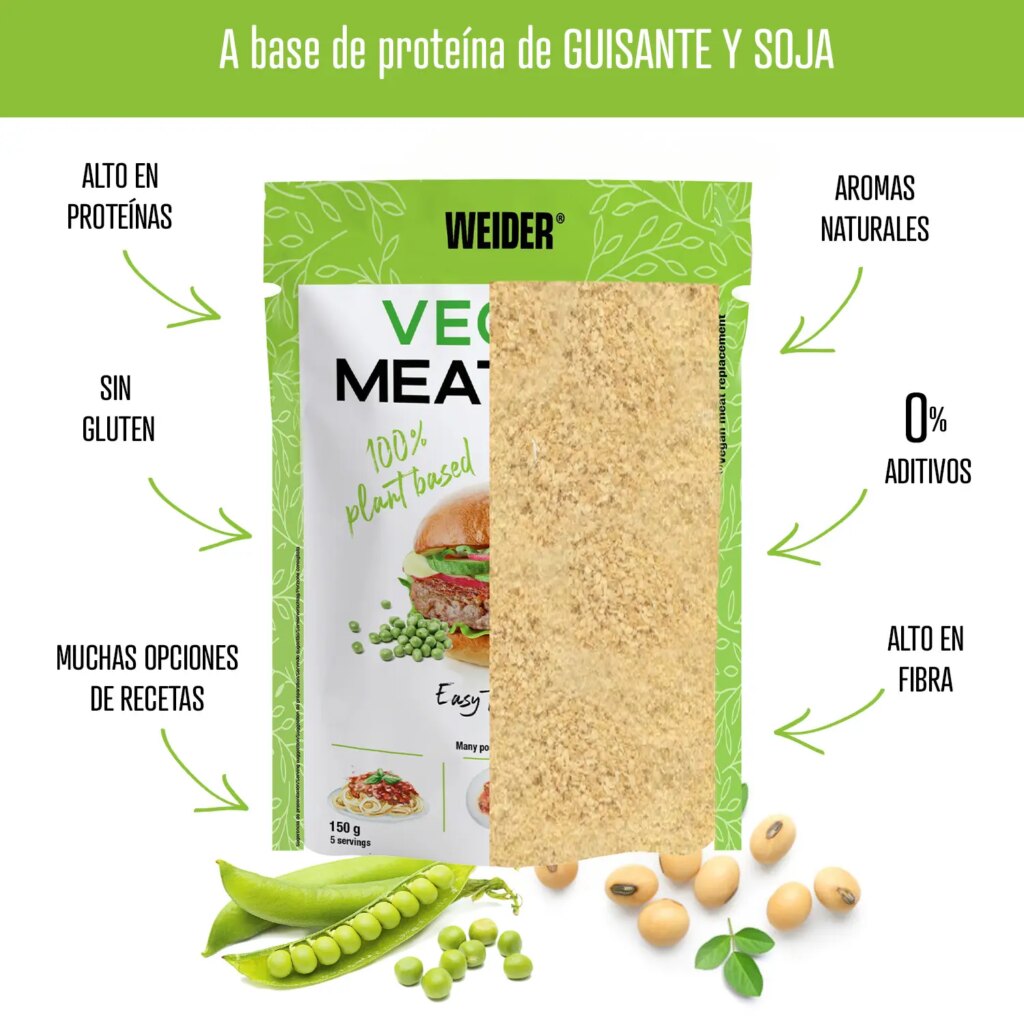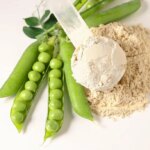It is often thought that amino acid and protein intake in vegetarian diets may be inadequate. It has now been shown that the amounts and proportions of amino acids consumed by vegetarians and vegans are usually more than sufficient to meet and exceed daily requirements, provided that these two characteristics are met: the first is that the daily diet has a wide variety of plant foods high in protein and the second is that adequate energy (calorie) intake is consumed.
Why is protein so important?
The proteins are essential nutrients and play a very important role in the functioning of our vital organs, but they are not needed in large quantities, as many people think. Generally speaking, in a balanced diet, only around one 10-20% of proteins.
Proteins are made up of amino acidswhich is what we really need for our biological functions. Humans cannot create nine of the twenty most common amino acids, which is why these are considered essential. In other words, we need to get these amino acids from our food in order for our bodies to be able to create proteins.
What sources of plant protein are there?
Eggs, cow's milk, beef and fish have always been labelled as having very high quality proteins, thanks to their high content of all the essential amino acids. In the vegetable world, on the other hand, soy, quinoa and spinach are considered high protein plant foods. from qualityHowever, there are other plant-based sources of protein that also contain all the essential amino acids, although their amino acid distribution profile is less optimal compared to animal-based foods.
For example, cereals are low in lysine, and similarly sulphur containing amino acids such as methionine and cysteine are slightly lower in legumes than recommended, as is their tryptophan content. Peas also contain a good amino acid profile, but lack methionine and cysteine.which can be found in dairy and soy equivalents. Although pea protein is often popular in the vegetarian world, it has a less complete amino acid profile compared to soya, however, it has great benefits for cardiovascular health and its high arginine content may contribute to diabetes management when combined with exercise.
This is relevant for someone who eats only rice or beans all day and does not have a varied food intake. However, vegan or plant-based diets, although stricter, provide for a varied intake of plant foods such as pulses, legumes, cereals, seeds and nuts, thus facilitating a complete intake of essential amino acids and protein quantity.
How do we know if our vegan diet contains the complete protein we need?
Until recently it was believed that it was necessary to consume a certain combination of foods, e.g. pulses and cereals, in the same meal to obtain amino acids in adequate amounts. However, it has now been shown that it is not necessary to consume them in the same meal or in certain proportions; it is only necessary to consume a wide variety of foods throughout the day to obtain the right amount of amino acids.
Similarly, the protein intake of vegetarians or vegans is not primarily a question of specific amino acid distributions, it is more a question of total protein intake. This means that it is not the amino acid intake that is the problem, but the amount of protein consumed during the day. Herein lies the importance of knowing the recommended amounts of protein for each of us. Consuming the right amount of protein is key to avoiding deficiencies.
In this line of thought, the American Dietetic Association maintains the following position:
"Plant protein can meet nutritional needs when a wide variety of plant foods are consumed and energy needs are met. Research indicates that a variety of plant foods eaten over the course of a day can provide all essential amino acids and ensure adequate nitrogen retention in healthy adults, so that supplemental proteins need not be consumed at the same meal. Estimates of the protein needs of vegans vary depending to some extent on dietary choices. A recent meta-analysis of nitrogen balance studies found no significant differences in protein requirements depending on protein source.
The quality of plant proteins varies. Taking into account the corrected rate of amino acid digestibility of proteins, which is the standard method for determining protein quality, soy protein isolate can meet protein needs as effectively as animal protein.whereas wheat protein ingested alone, for example, may be 50 % less usable than animal protein. Protein requirements may be higher than the Recommended Daily Amounts (RDAs) in vegetarians whose dietary sources of protein are those that are less efficiently digested, such as some cereals and legumes.
Although some vegan women have minimal protein intakes, the typical protein intake of ovo-lacto-vegetarians and vegans appears to meet and exceed needs. Athletes can also meet their protein needs with plant-based diets.
What about energy intake?
In parallel, the total energy intake of the person and how much of that energy comes from plant foods high in protein is something that should not be lost sight of. If a person consumes during the day the corresponding energy according to his or her needs and this consumption contains a good and varied intake of foods rich in plant protein, then we could think that the protein intake is sufficient.
In the case of athletes, it is recommended to control their protein intake, as both they and older adults are groups in which protein requirements are increased. In these cases, there are a wide variety of products and foods on the market that provide sufficient protein, including our new alternative to meat in powdered form, Vegan Meat Mix. Its main ingredients include 75% of concentrated pea and soya proteins, ensuring a complete supply of amino acids, made only from natural ingredients and free of GMOs, which makes it a complete and additive-free formula. In addition to allowing us to prepare a variety of dishes quickly, such as hamburgers, meatballs, minced "meat" to accompany pasta or as a filling for other preparations, thus facilitating its combination with a wide variety of other foods.

All things considered, we can say that it can be easy to achieve the necessary amounts of protein when following a vegetarian or even vegan diet. The following table shows the amount of protein in various plant foods and vegan products.
Table 1: Protein content of some plant-based foods and vegan products

*A portion of Vegan Meat Mix is equivalent to 100g of product prepared with olive oil..
In conclusion:
Our recommendation before making any changes to your diet is to seek reliable information and, if possible, to seek the advice of a professional in the area to help you distribute food in a varied way to ensure the correct supply of energy and nutrients in your day-to-day life, always adjusted to your habits, preferences and lifestyle. Rest assured that opting for a more plant-based diet does not prevent you from achieving adequate intake of high quality protein, as long as your diet is varied in whole grains, pulses, seeds, nuts and vegetables throughout the day.

Other articles of interest:
- Taking Vegan Protein is good, even if you are not Vegan.
- Why choose vegan pea protein and not others?
- Can you gain muscle mass with vegan protein?


